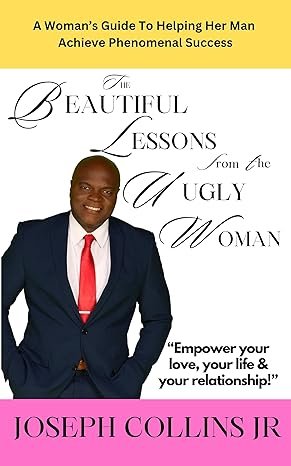Community News
Dealing With Bullying Debt Collectors
The Downward Debt Spiral in Oklahoma. Inequities of debt collection lawsuits in newly released Oklahoma Access to Justice (AJT) Foundation report highlighted in debt collection study.
Published
2 years agoon
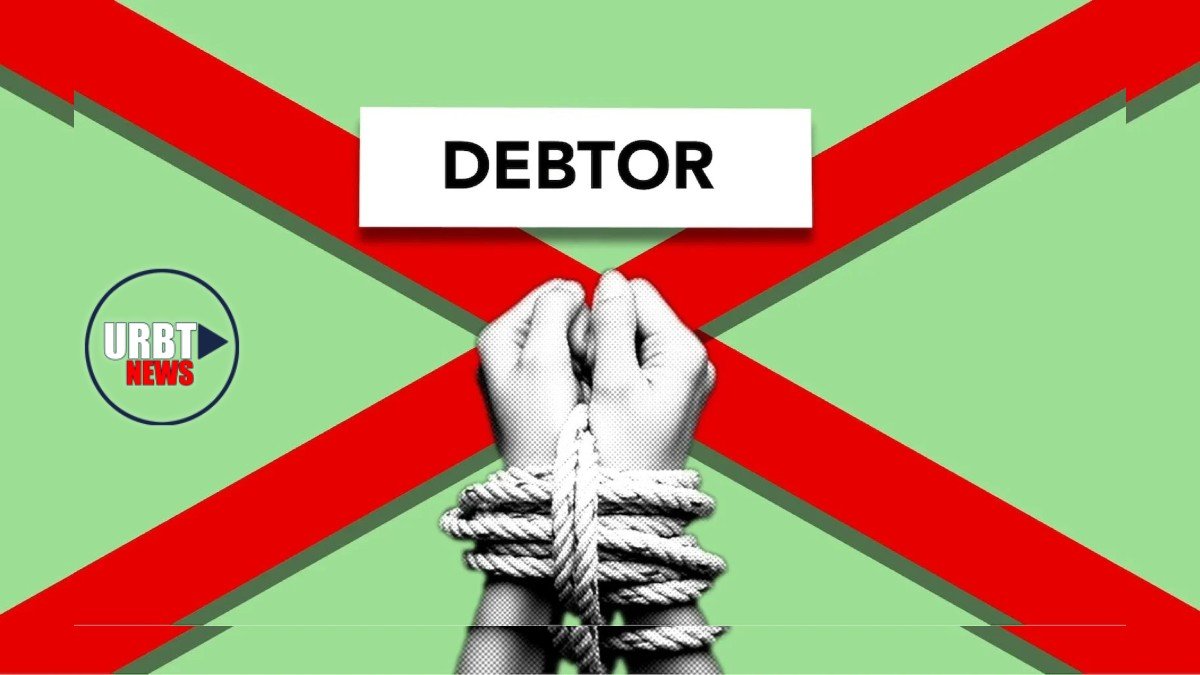
Dealing With Bullying Debt Collectors. The Oklahoma Access to Justice Commission worked from 2014 to 2023 to develop and implement policy initiatives aimed at increasing access to and improving the quality of civil legal services for low-income Oklahoma residents.
On August 29, the Oklahoma Access to Justice (ATJ) Foundation completed and released a debt collection study of Oklahoma’s judicial debt collection system. In addition, the AJT Foundation released a much shorter Executive Summary.
The Oklahoma Access to Justice (ATJ) Foundation conducted this study to show the inequitably handling in how debt collections. Additionally, the study offers data-informed solutions that can better support unrepresented and low-income Oklahomans. Better support is possible by combining new, quantifiable court data with findings from court observations and interviews.
As defined in this report, consumer debt refers to debt incurred primarily for personal, family, or household purposes. This type of debt can take several forms. A rent payment, for example, charged to a credit card in order to afford groceries that month. Or a car loan obtained by a recent college graduate to get to and from their new entry-level job. Consumer debt also includes thousands of dollars in medical debt that follows a new mother home after childbirth. Furthermore, it includes the cost of a health scare that depletes a family’s savings. Unmanageable debt of this nature is frequently the source of a lawsuit.
The Executive Summary of The Downward Debt Spiral: A Study of Oklahoma’s Judicial Debt Collection discusses how debt collection lawsuits dominate Oklahoma’s courts.
DOWNLOAD THE URBT NEWS APP Dealing With Bullying Debt Collectors
Debt Collection Lawsuits
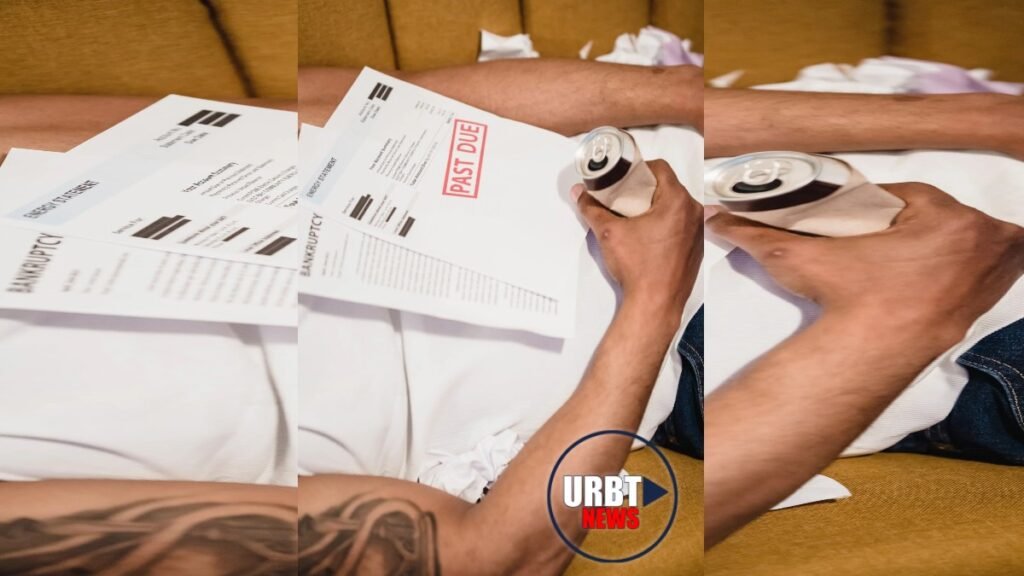
PICTURE: Past due notice for unpaid balances owed by its cutoff time at the end of its due date.
The debt collection study’s first finding was that debt collection lawsuits predominated in Oklahoma’s courts. Unfortunately, consumer debt is a growing problem across the country. This is particularly true among those who must rely on high-interest loans to meet basic needs. Consumer debt collection lawsuits are the single most common type of case in Oklahoma’s civil courts. The number of consumer debt collection cases filed over the study period (2018-2022) exceeded 340,000. These debt collection suits predominate in local courts. According to the ATJ Foundation, judges in some counties had nearly 200 cases to handle in a single morning.
The collection of debt affects rural and urban communities throughout Oklahoma. Rural counties, in fact, frequently have higher rates of debt collection filings than metropolitan counties.
National Debt Collectors and Banks

PICTURE: Various financial services companies shown in a business district skyline.
The Downward Debt Spiral in Oklahoma. The debt collection study’s next finding was that national debt collectors and banks dominate these dockets, extracting wealth from Oklahomans. Eight of the top ten filers in Oklahoma were national corporations with headquarters elsewhere. In contrast to individual consumer defendants, these large businesses have experience with legal systems. Individual consumer defendants frequently cannot afford representation and must navigate the court system on their own.
Low-Income People are Disproportionately Affected
Thirdly, consumers with low incomes suffer disproportionately from consumer debt, according to the debt collection study. The downward spiral of unmanageable day-to-day debt can push people deeper into debt and keep them impoverished. Debt collection cases, like most issues of meaningful access to our justice system, disproportionately affect people with low incomes. This is the case because they are more likely to experience disruption in the flow of income. A disruption in income could lead to payment default. Because Oklahoma’s poverty rate is higher than the national average, it is critical that we examine systems that exacerbate poverty.
According to the Oklahoma poverty rate 2000-2021 report, published on October 7, 2022 by the Statista Research Department, approximately 15.6 percent of Oklahoma’s population lived in poverty in 2021. This is a slight increase from the previous year, when approximately 15.3 percent of Oklahoma residents were poor.
In comparison, according to the Statista Research Department’s Poverty rate in the United States 1990-2021 report, published on September 30, 2022, approximately 11.6 percent of the population in the United States was living below the national poverty line in 2021.
Without safeguards, debt collection lawsuits can lead to a dangerous and life-altering debt spiral. This can result in long-term consequences for an individual’s physical, mental, and financial well-being.
DOWNLOAD THE URBT NEWS APP Dealing With Bullying Debt Collectors
Debt Collection Cases are Heard in Two Courts

There are two courts in Oklahoma that hear debt collection cases, according to the debt collection study. The two courts are: small claims court and civil court.
The law limits the cases you can file in Small Claims Court, according to Legal Aid Services of Oklahoma, Inc.. Legal Aid Services of Oklahoma, Inc. is a non-profit law firm that provides civil legal assistance to low-income people throughout Oklahoma. Generally, small claims courts deal with accidents, contracts, unpaid bills, and landlord-tenant disputes.
Small claims court has a statutory debt claim limit of $10,000. In addition, debt buyers cannot sue. There are also minimal documentation requirements. According to the OKLaw.org website, which is a joint project with Legal Aid Services of Oklahoma, Inc., Oklahoma Indian Legal Services, the Legal Services Corporation and Pro Bono Net, the “Small Claims Procedure Act was set up to allow people to bring claims before a judge quickly. No formal ‘pleadings’ are required in small claims except those needed to state the claim or counterclaim.”
The Small Claims Procedure Act in Oklahoma requires small claims courts to hear cases within 60 days of filing. This frequently means that the court’s dockets are full and court proceedings are fast-paced.
Claims can be filed in civil court for any amount. It is the only venue for cases involving debts exceeding $10,000. Small claims court has less formal procedures and requirements than civil court. Creditors are much more likely to have legal representation. A formal answer is required in civil court before a hearing is scheduled. Whereas small claims hearings are scheduled without additional steps. Unrepresented consumer defendants are disadvantaged by a lack of available legal information.
What is a Default Judgment?
Before a judgment is entered, many consumer defendants do not participate in their lawsuit. If a consumer defendant fails to appear for their hearing in court, a default judgment can be entered against them.
A default judgment is a ruling issued by a judge or court in favor of one party in a legal case due to the other party’s failure to take action. Examples include failing to respond to a court summons or failing to appear in court.
A default judgment is a ruling issued by a judge or court in favor of one party in a legal case due to the other party’s failure to take action.
“If you do not go to the court hearing, the judge can enter a judgment against you for money or property,” states the OKLaw website.
Most counties do not require creditors to provide proof of debt to obtain a default judgment. Unless the consumer defendant participates in the case, the validity of the claim is not challenged.
Valid Judgment Entered
Unfortunately, default judgments against the consumer defendant are the most common type of judgment issued in these cases. This is oftentimes a consequence of the consumer defendants’ failure to participate in the suit. Default judgment rates are extremely high in both small claims and civil court. This indicates that creditors have ample opportunity to bring cases without providing any proof of debt.
When consumer defendants appear in court, court-provided mediation services can be extremely beneficial. Both parties benefit from this. The consumer can work out a payment plan that works for them, and the creditor is paid. Many courts in Oklahoma, however, have inconsistent or no access to mediation services.
A creditor has the authority to collect payment if a judgment is valid. If both parties do not, or cannot, agree on a payment plan, this can include garnishing wages. Additional, it can lead to levying a bank account or putting a lien on the consumer defendant’s property. Creditors can request an asset hearing to determine what property the consumer defendant possesses that could be used to pay the debt. Failure to appear at an asset hearing has serious consequences. Failure to appear consequences can include the issuance of a bench warrant for the consumer defendant. A bench warrant can add additional fines and court costs to the existing judgment. As a result, debtors’ prison is a real concern for many people facing debt collection lawsuits.
DOWNLOAD THE URBT NEWS APP Dealing With Bullying Debt Collectors
Additional Costs Can Inflate the Amount Owed
The debt collection study’s next finding is that when a debt is taken to court, additional costs can inflate the amount owed. Consumer defendants frequently face significant financial barriers in getting to court. For example, they may have to plan on missing work and losing a day’s pay in order to defend their case. If they have children, they may be required to pay for childcare services. Even getting to court can be costly and time-consuming. These additional court costs create additional barriers for consumer defendants who are frequently facing a debt collection lawsuit due to a lack of adequate financial resources.
In addition to these initial financial barriers for consumer defendants, filing fees for claims range from $45 to $250. Both small claims court and civil court charge filing fees for claims. Each filing can increase the cost of a case. If a judgment is entered against the consumer defendant, all of these costs are added to the initial debt. These additional court fees increase the amount the consumer defendant is then responsible for.
The OKLaw website states, “The judge can add court costs to the amount of the judgment against you.”
The longer a case is open, the more actions are taken. This further increases the number of fees and results in an even higher judgment against a consumer defendant.
Further Additional Costs

The Downward Debt Spiral in Oklahoma. The OKLaw website states, “If the person suing you has a lawyer, you may also have to pay attorney fees. Attorney fees can be from 10% to up to 25% of the amount of the judgment.”
Oklahoma limits attorney’s fees for consumer loans to less than 15% of the original amount in dispute. Still, this can significantly impact a consumer defendant’s ability to manage a debt they were unable to pay.
When a debt case goes to court, additional interest is collected. If the case is founded on a contract with a predetermined interest rate that rate will be applied. In the absence of a contractual rate, statutory pre-judgment interest is applied before judgment. This is followed by a higher post-judgment rate through collection. The ongoing interest can have a significant impact on the amount that the consumer defendant will eventually have to pay. This can affect their ability to effectively plan for debt repayment. Some creditors sit on these judgments for years without collecting, while the debt grows.
DOWNLOAD THE URBT NEWS APP Dealing With Bullying Debt Collectors
Safeguards to Ensure That Garnishment and Collections are Fair
The sixth finding of the debt collection study was that Oklahomans require safeguards to ensure garnishment and collections are fair. Creditors can garnish a consumer defendant’s wages through a process known as “continuous garnishment.” To do so, they must send notice to the consumer defendant. Still, according to the attorneys with whom the ATJ Foundation spoke, this notice is frequently ineffective.
Consumer defendants who do not receive actual notice of a garnishment may miss their opportunity to freely claim garnishment exemptions. They may also lose money that they are legally entitled to keep. Creditors can also collect payments via a “non-continuous” garnishment, also known as a bank levy. The bank is required to protect exempt funds from garnishment, but there is no legal requirement to do so. The bank is required to protect exempt funds from garnishment. Still, there is no mandated minimum balance that must be maintained in a bank account. This means that a bank account can be zeroed out in a single day.
Creditors are filing claims in some cases against consumer defendants who will never have to pay. This is because of state and federal protections and exemptions that make them collection-proof. Cases against them can be a waste of court resources pursuing an uncollectable debt.
What is Continuing Garnishment?
A continuing lien on earnings may be obtained by any judgment creditor. The garnishment amount is limited to 25% of your disposable earnings for that week under 15 U.S.C. 1673. After mandatory deductions, this is what remains.
Alternatively, the garnishment amount is limited to the amount by which your weekly disposable earnings exceed 30 times the federal minimum hourly wage, whichever is less.
A garnished consumer defendant can appear in court and request an undue hardship exemption. You can apply for an undue hardship exemption, if you have a family to support. This is referred to as a “Request or Claim for Exemption” from garnishment by lawyers. An “exemption” means that you will not be required to pay the debt to the creditor. However, this process is often difficult to navigate.
DOWNLOAD THE URBT NEWS APP Dealing With Bullying Debt Collectors
Biased Against Unrepresented
The debt collection study’s final conclusion was that the debt collection system is biased against unrepresented consumer defendants. Almost all of the consumer defendants are unrepresented. Consumer defendants are effectively unrepresented in small claims courts, while only 2-6% are represented in civil courts. Because they are frequently in financial difficulty, consumer defendants have less access to representation than creditors. Additionally, free legal services, like those provided by Legal Aid Services of Oklahoma, for these cases are limited in Oklahoma. Consumer defendants have little information to help them defend themselves against debt collection lawsuits. Consumer defendants are at a disadvantage throughout the legal process. Creditors have legal representation at 40% in small claims courts and over 90% in civil courts. Fortunately, there are numerous approaches to addressing this issue.
Old Debts – Can they be collected?
Every situation is different and collectors rely on your lack of legal knowledge and failure to ask enough questions! The OKLaw website states, “A debt on which you have not made a payment in at least 5 years – is old!”
If you have a “old” debt and collectors contact you, they may request a single payment to “make it go away.” What you might not realize is that making just one payment will “REVIVE” the debt! Reviving the debt means you no longer have a “defense” in court to collection of an old debt.
Collection agencies/collectors may continue to contact you. They have the legal right to sue you and take you to court. However, you do have a “defense” to the lawsuit. The defense is that it is “old” or “stale” because the statute of limitations for collection (the time limit for suing you) has passed.
If you are sued for a debt, DO NOT ignore it and hope it goes away. It will not! Seek the advice of a lawyer.
The company may obtain a default judgment against you and be able to withdraw funds from your bank account or require you to appear in court to reveal the location of your assets.
According to the OKLaw website, it means you may have waived a “defense”‘ to the lawsuit by failing to respond to a notice of a lawsuit or a court date, or you may waive the “defense” and revive the debt for collection purposes if you make a payment on a ‘old’ debt. Everything starts over, and the debt judgment against you is now ‘enforceable.’ Wages and bank accounts can be garnished, and the judgment holder can continue with collection actions in court.
Fair Debt Collection Practices Act (FDCPA)
The Fair Debt Collection Practices Act (FDCPA) makes it unlawful for a debt collector to harass, oppress, or abuse any person while collecting a debt.
If you ask in writing, a debt collector must also stop contacting you about the debt. You must send them a letter requesting that they “cease communications.”
According to the OKLaw website, “The FDCPA ONLY applies to collection agencies or debt collectors who are collecting for another creditor. It DOES NOT apply to creditors collecting their own debts. Creditors collecting their own debts still cannot harass you, but the restrictions on their actions are governed by state law, not federal.”
Debt collectors typically collect “unsecured debts.” That is, you have not put up any collateral to secure the debt, such as your home, car, or household items. Unsecured debts include almost all credit card debts, medical bills, and small loans. As a result, a debt collector has little legal recourse against you if you do not pay the debt.
Dealing with Bullying Debt Collectors
Threats to do anything else in relation to an unsecured debt are illegal under federal law!
Do not let debt collectors bully you. Debt collectors cannot do much to you unless you have a secured debt, even if you do not pay. This is why they frequently scream the loudest and for the longest in order to obtain their money. The following are some steps you can take to keep debt collectors from ruining your life.
As detailed on the OKLAW website, the following are some steps you can take to keep debt collectors from ruining your life.
- Stop It Before It Starts – Call your creditor and explain your situation. This may prevent your debt from being sent to a collection agency.
- Send A Cease Communication Letter
- Payment Plan – Even if the collector tries to talk you into paying more, stick to your guns and only agree to pay what you can.
- Complain To A Government Agency – Inform the Federal Trade Commission’s Bureau of Consumer Protection, Washington, DC 20580, of abusive collection practices. You can also use the internet to file a complaint with the Better Business Bureau at www.bbb.org.
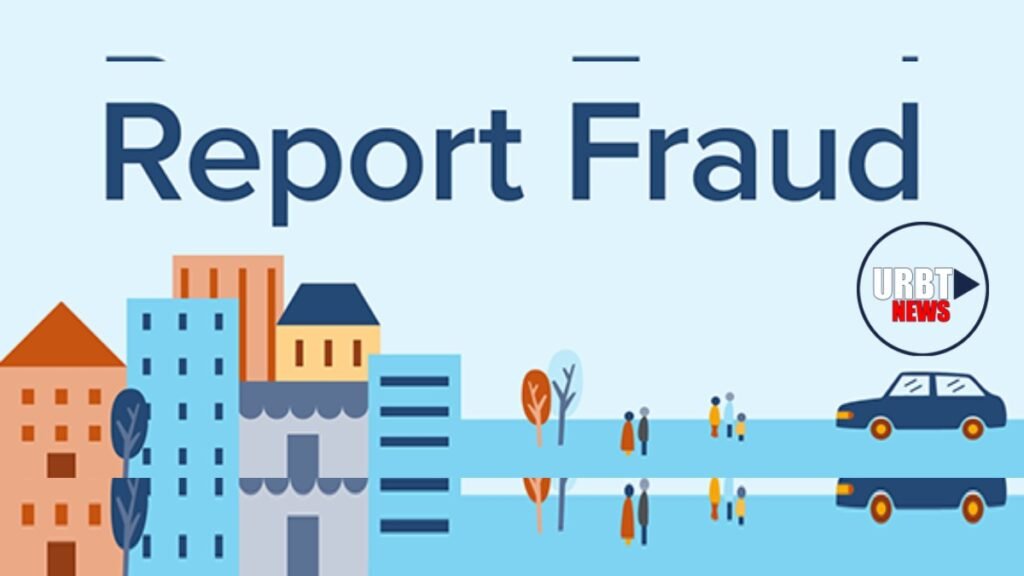
As the nation’s consumer protection agency, the FTC takes reports about scammers that cheat people out of money and businesses that don’t make good on their promises.
The Federal Trade Commission’s Bureau of Consumer Protection combats unfair, deceptive, and fraudulent business practices by collecting consumer complaints and conducting investigations, suing companies and individuals who violate the law, developing rules to ensure a fair marketplace, and educating consumers and businesses about their rights and responsibilities.
AJT Foundation Recommendations
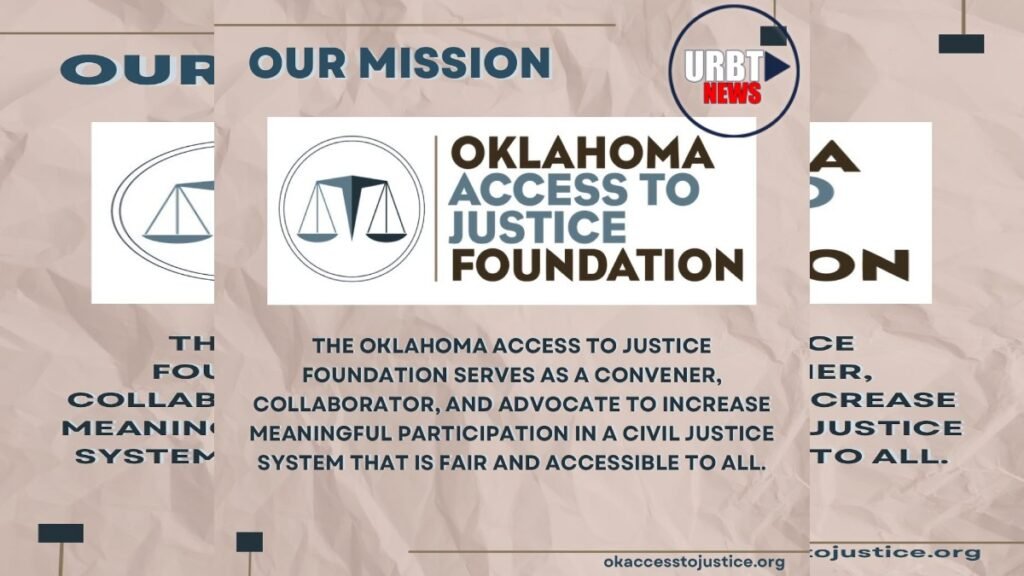
PICTURE: Oklahoma Access to Justice Foundation mission. PHOTO: COURTESY OF: Oklahoma Access to Justice Foundation Facebook account. (Dated: November 2, 2022)
The AJT Foundation made recommendations to make debt collection court processes easier for unrepresented litigants to navigate by increasing access to knowledge and resources and improving procedural fairness and court efficiency.
Engagement and empowerment, consistency and fairness, protection and strengthening are among the recommendations.
DOWNLOAD THE URBT NEWS APP Dealing With Bullying Debt Collectors
Engagement and Empowerment

The Oklahoma Access to Justice Foundation serves as a convener, collaborator, and advocate to increase meaningful participation in a civil justice system that is fair and accessible to all. PHOTO: COURTESY OF: Oklahoma Access to Justice website
These recommendations would help to increase participation in the debt collection legal process, ensuring consumer defendants have a fair day in court and can pursue available defenses reasonably.
The achieve engagement and empowerment, the ATJ Foundation recommends promoting information equity by providing detailed, educational information at every stage of a case, particularly for the consumer defendant. All forms of equity are built on information. The equitable distribution of information among individuals, groups, regions, categories, or other social units, so that those people can achieve whatever is important or meaningful to them in their lives.
Allowing the entire community access to the same apples-to-apples data and arming them with the ability to make better long-term decisions is what information equity entails.
Furthermore, the AJT Foundation recommends ensuring that all court and community partner communications use plain language and user friendly forms written at a 6th grade reading level and made available in common languages represented in Oklahoma may increase engagement with the legal process.
Furthermore, the AJT Foundation recommends more equitable notice requirements are required, particularly for garnishments from default judgments. This will allow employees to financially prepare for a reduction in their income and participate in their case post-judgment.
Additionally, allowing a consumer defendant to easily request a motion for continuance in small claims court may reduce the number of defendants who miss their scheduled court date due to logistical issues.
Finally, providing sample motions to vacate or challenge a judgment, as well as forms for and encouraging unrepresented litigants to use checkbox defenses, should make it easier for them to exercise their rights.
DOWNLOAD THE URBT NEWS APP Dealing With Bullying Debt Collectors
Consistency and Fairness
These suggestions aim to hold all parties in debt collection cases to a consistent standard, ensuring that our state courts are fair and equitable to all users.
To ensure consistency and fairness, the AJT Foundation’s first suggestion is for increased documentation requirements. This would aid in avoiding the waste of court resources on invalid claims. Requirements such as an affidavit from the creditor proving debt ownership and that the statute of limitations has not expired could help deter these claims before they reach an already overburdened judicial system.
Furthermore, the AJT Foundation recommends that the courts could level the playing field between defendants and plaintiffs by dismissing a case with prejudice if the plaintiff fails to appear at the hearing without giving the court notice.
Additionally, judges should use disposition dockets and expand pre-trial mediation options for unrepresented litigants to help reduce the number of cases that remain open without resolution. Disposition dockets may reduce caseloads by enforcing the time frame in which cases must be disposed of, and pre-trial mediation may reduce the number of cases that ever have to go before a judge.
Finally, limiting a creditor’s ability to renew inactive judgments would prevent creditors from sitting on unpaid and uncollected judgments in order to accrue post-judgment interest without making any attempts to collect from the consumer defendant.
Protection and Strengthening
These recommendations recognize the individual and societal impact of debt and debt collection on Oklahoma’s workforce, and they aim to improve the financial stability of all Oklahomans.
To promote protection and strengthening, Oklahoma could reduce the financial impact of debt collection lawsuits by enacting stronger exemptions and protections against garnishment, as well as consistent, lower post-judgment interest rates.
To avoid wasting judicial resources and to protect some consumer defendants from unnecessary legal proceedings, the AJT Foundation recommends that courts should establish a process to flag collection-proof defendants.
Legal Help
If you need legal assistance but don’t know where to look, the links below may help.
- Legal Aid Services of Oklahoma assists low-income Oklahoma residents throughout the state.
- OKLegalConnect can direct you to the most appropriate resource for your situation and location.
- Free Legal Answers Oklahoma is a website where you can submit questions anonymously and have them answered online by a lawyer.
- Legal Information for Oklahoma is a public legal information service provided by the Oklahoma Department of Libraries and the Oklahoma Access to Justice Foundation.
In addition, the Oklahoma Bar Association’s Find A Lawyer service may be useful if you need to hire a lawyer.
Oklahoma Access to Justice Summit
According to the Oklahoma Access to Justice Summit website, the organization provides engaging educational sessions on a variety of access to justice topics (approved for CLE credit, including one hour of ethics). Rural legal access, incorporating pro bono into practice, procedural fairness for unrepresented litigants, and other topics are covered. The Summit is appropriate for non-profit and private practice lawyers, judges, law students, and other interested community partners.
Save the date for the 2023 summit: Friday, October 20.
Editor’s Note: Donald Cherry works as a Data Manager for Legal Aid Services of Oklahoma. The views expressed on or through this website are solely those of the author, and not those of their respective employers. All liability for actions taken or not taken in reliance on the contents of this site is expressly disclaimed. The content of this posting is provided “as is,” with no guarantee that it is error-free. Readers of this article or website should consult with their attorney if they have any legal questions. No reader, user, or browser of this site should act or refrain from acting based on information contained on this site without first seeking legal counsel in the relevant jurisdiction. Only your personal attorney can guarantee that the information contained herein, as well as your interpretation of it, is applicable or appropriate to your specific situation.
DOWNLOAD THE URBT NEWS APP Dealing With Bullying Debt Collectors
You may like
-


Single Men & Step-Fatherhood: Crucial Considerations Before Taking the Plunge
-


Jesse Jackson Dies at 84: Civil Rights Icon’s Legacy
-


Minority Births Surpass White Births: A Demographic Shift Impacting America
-


Hot Girl Summer: Your Guide to Confidence, Fun, and Intentional Living
-


Shrek as a Cautionary Tale: Unmasking the Ogre’s Life Lessons
-


Test Your Spelling Skills: How Good Are You Without Technology?

